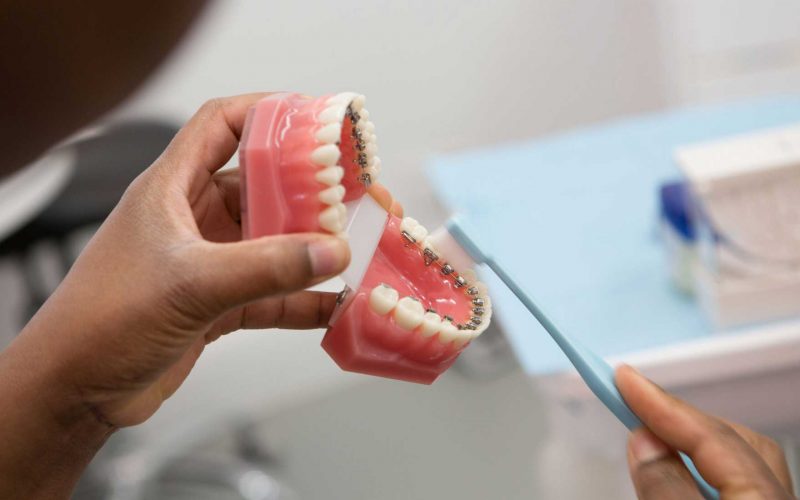7 Foods that cause bad breath
Posted by: Jodie Blades Diploma Level 3 in Dental Nursing
Medically reviewed by: Dr Shan Lam BDS (Bris)
”Your gum cuffs your teeth much like a shirt collar, regular flossing and brushing closely around this gum cuff is essential to remove the plaque from these areas
by Holland Park Dental Centre on Dental Health, Dental Hygiene and General Dentistry
Bad breath can be a common problem for many adults, often affecting their self-confidence and how they engage in conversations or interact with friends, colleagues and family.
7 Foods that cause bad breath
Sometimes, bad breath can actually be a sign of a more serious health problem. ranging from Gingivitis – treatable gum problems, through to the more serious Periodontitis, fully fledged gum disease that leads to erosion of bone. And even Gastroesophageal reflux disease (GERD) is a chronic condition marked by persistent acid reflux,
Read More: 5 essential reasons to see a dental hygienist
Below are some of the foods that can be the cause of bad breath, those that have a positive impact on breath and a few tips on how to negate the impact of problematic parts of your diet.
Some foods can dehydrate your mouth which feeds the bacteria that can cause bad breath. Unfortunately, it might be hard to completely avoid these foods – they can all be part of a healthy, flavoursome diet. A diet that is perfect for your breath might not do much for the taste buds.
Tea and Coffee
Tea and coffee are both diuretics and reduce the saliva in your mouth. And, they also have a strong, lingering smell in their own right. Eradicating both from your diet would reduce the risk of bad breath, but the cull might not do much for your morning routine. (Nope, we couldn’t either!)
Try following your morning cuppa with a glass of water – helping to rinse the mouth and also replenish moisture levels.
Alcohol
Drinks that cause the worst smells are those high in sulphites – Hello, Alcohol! Alcohol has a very noticeable dehydrating effect, creating the perfect environment for bad bacteria to linger and to thrive.
As with tea and coffee, drinking water can be beneficial, so too limiting alcohol intake where possible.
Garlic & Onions
Both onion and garlic do so much to make food taste better, adding depth of flavour to curries, pasta sauces and more.
The smells can linger and so they can impact breath long after you’ve eaten any meal it was contained within – sometime to the extent that it can enter the bloodstream and exit through the lungs, which is why people sometimes have the feeling they are tasting them days after eating.
Protein
Protein doesn’t necessarily have a smell itself, but it can lead to the processes that create bad breath.
If you have too much protein and a high proportion of protein relative to fat and carbohydrate, the body will use this protein for energy. The body’s way of using protein for fuel is called ketosis and the bi-product, ketones, have a pungent smell that cannot be masked by brushing or flossing.
Depending on other dietary needs, it might not be practical or healthy to reduce your protein intake – we don’t advise that you prioritise breath over other aspects of health.
Increasing your water intake can help remedy the impact of a diet high in protein.
Canned Fish
Fish from a can might be a quick and easy lunch, (Mmmmm now we’re thinking about a tuna & sweetcorn filled jacket potato!) but, it is a meal choice that will most likely lead to quite bad breath.
Whilst in the can, the fish begins to oxidise and this creates the odour; this a smell that then clings to the mouth long after that lunch.
Sugar
Sugar is the ultimate fuel for bad breath causing bacteria. Those looking to tackle bad breath often chew gum as a way to keep the mouth moist – this only works if the gum is sugar free; otherwise you’re simply feeding the bacteria!
Acidic foods
Fruits and vegetables that are highly acidic also create an environment those harmful bacteria love to exploit – this includes sauerkraut, tomatoes, blueberries and grapes.
Fruit and veg are essential to a healthy diet, and yet when these contain acid they can wreak havoc on oral health.
Related: Is your healthy diet destroying your enamel?
This highlights a key problem, the diet that is perfect your mouth might not be perfect for overall health – it would be lacking in certain food stuffs and not delivering the balanced diet required.
Book a Dental Exam


Sorry, the comment form is closed at this time.